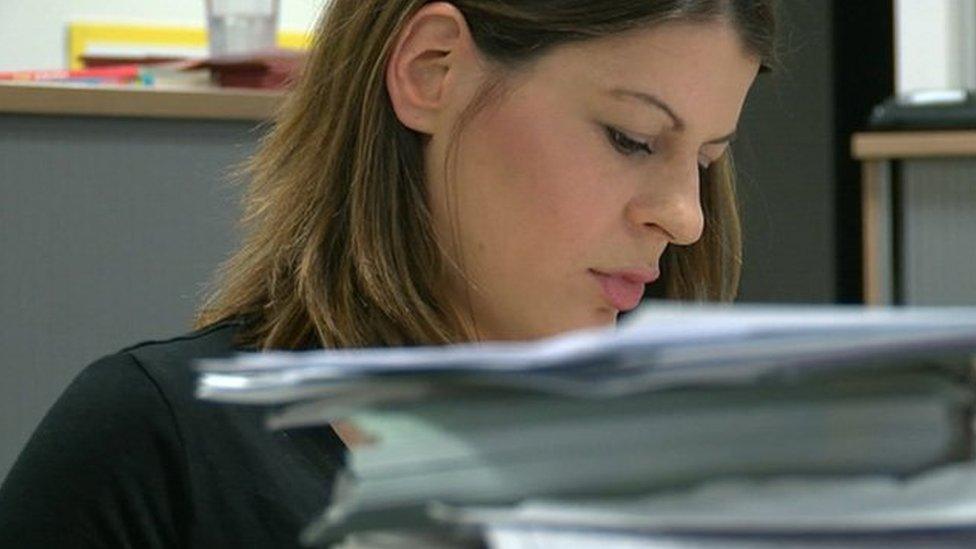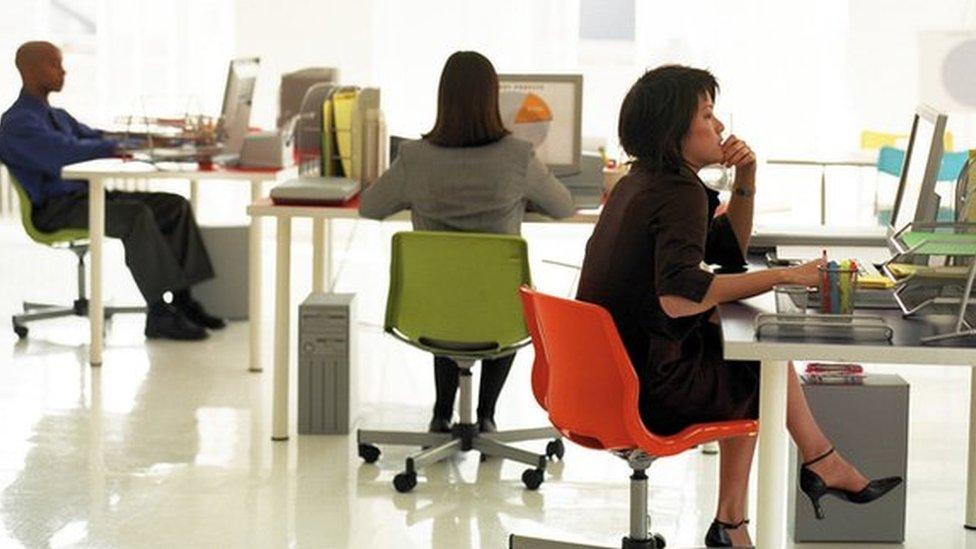Sexual harassment: Work 'power imbalance' tackled
- Published

Chwarae Teg said issues of poverty and gender equality are "inextricably linked"
A "power imbalance" between men and women in the workplace is to be tackled by four organisations.
The group believes inequality creates a culture where sexual harassment is normalised and can go unchallenged.
This is because it relies on women reporting sensitive and traumatic experiences, which puts them in a vulnerable position.
UK charities, including Chwarae Teg in Wales, have joined forces to try to instigate a culture change.
"We know that sexual harassment and fear of potential sexual harassment are significant barriers to women accessing and progressing in the workplace," said Chwarae Teg's Cerys Furlong.
The gender equality charity's research showed women as young as 16, external were put off considering jobs in some male-dominated sectors for fear of facing sexual harassment.
"It's essential that we move away from the position where the onus is on the victim to come forward, towards a culture where the employer and management take a proactive stance," Ms Furlong added.
Chwarae Teg has joined forces with England's The Fawcett Society, Close the Gap from Scotland and the Women's Resource and Development Agency, based in Northern Ireland.

Chwarae Teg believes women are put off from applying for certain jobs
After gaining backing from charitable fund Rosa, external, they will work together in what Ms Furlong called a "ground-breaking project", saying it would provide "real, tangible tools for employers to use" with a view of eliminating the problem.
The group will try to make it easier for women to report issues and look at the challenges that leave women targets of sexual harassment, such as ethnicity.
The project will also research how employers, managers and employees view current experiences, promote a proactive, responsive culture and make workplaces better environments.
Chairwoman of the project's steering committee, Marai Larasi, said it was about putting "building blocks" in place for a more equal society.
"In the last two years we have seen unprecedented attention being given to violence against women and girls, including sexual harassment," she added.
"We are determined to not lose that momentum. If we are to end sexual harassment, we need widespread cultural change."
- Published19 July 2017

- Published27 January 2019
